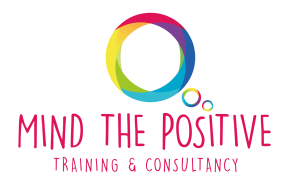Proposal of a New Employee Well-Being Model: Employee Wholeness
PROPOSAL OF A NEW EMPLOYEE WELL-BEING MODEL: EMPLOYEE WHOLENESS
Şirli Ender-Büyükbay
PhD in Business Administration Thesis Supervisor: Assoc. Prof. Dr. Ela Ünler
June 2017, 272 Pages
Abstract
There is a growing interest for positive psychology at organizational management. Well-being of employees has increasingly been a matter of focus, primarily for its impact on employees’ work performance. Various models of well-being and measures for identifying employees’ level of engagement are in practice. However, the available models are limited in explaining employee well-being, whereby predicting work performance. There is a need for a broader, multi-dimensional construct, as individuals are complex beings, with multifaceted needs. As a result of an extensive literature review and in-depth field research, present study has attempted to address this need, through proposing a new model of employee well-being with holistic perspective –i.e. employee wholeness that would predict employee work performance.
At its attempt, with the guidance of previous well-being models, the study has assumed that a holistic composite construct of well-being, would relatively more strongly effect work performance, than the effect of its individual dimensions. In order to confirm or reject proposed research questions and hypotheses, the study has taken several research steps –literature review, focus group interviews (qualitative research), questionnaire administration (quantitative research), and statistical analysis (with SEM). At the first phase –literature review, it has gathered 38 positive psychology and work-related elements to predict performance. Within a series of focus group interview sessions, 20 out of 38 elements have been determined, as positively predicting work performance.
Next, measurement scales for each element have been retrieved and selected from literature. In cases where reliable and valid scales were unavailable, the author has developed question items. Upon face-validity, and preliminary research (n=56), as part of quantitative research, questionnaire administration has taken place. Sample scope has been limited with Turkish white-collar professionals (n=576), working at the service sector. The statistical analysis of proposed research model, hence on, involved scale reliability check and exploratory factor analysis using SPSS, and confirmatory factor analysis with structural equation modeling (SEM) using AMOS.
According to analysis results, employees’ well-being is explained with a composite construct of seven dimensions: career success, emotional intelligence, psychological capital, engagement, general satisfaction, work-life balance, and authentic functioning. Among the dominant factors explaining employees’ well-being, and predicting their work performance, are meaning and purpose one gets from work, motivation and self- management skills, self-efficacy and hope, enjoyment from work activities, satisfaction with work life, balance, and freedom of choice. While each dimension individually has significantly predicted work performance, the proposed composite construct has relatively had stronger effect on work performance, than the effect of its individual dimensions.
First major contribution of this study is the proposal of a new well-being construct to predict employees’ performance. Second, it offers the possibility to determine the significance of positive organizational management practices on employees’ well-being and performance. Results, their theoretical and managerial implications, as well as limitations and future directions are discussed.
Keywords: Employee well-being, Multi-dimensional construct, Performance, Construct development.
